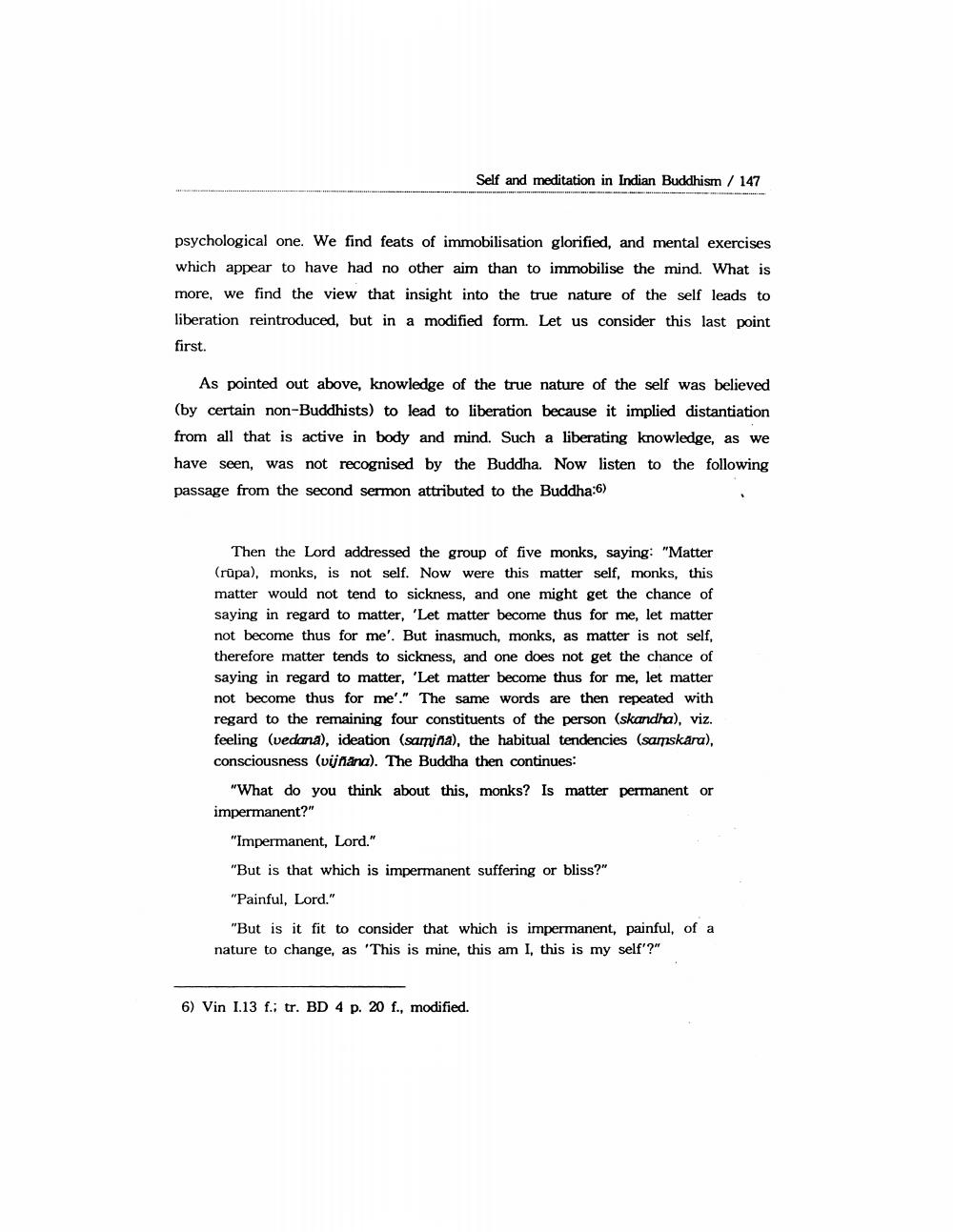Book Title: Self And Meditation In Indian Buddhism Author(s): Johannes Bronkhorst Publisher: Johannes Bronkhorst View full book textPage 7
________________ Self and meditation in Indian Buddhism / 147 psychological one. We find feats of immobilisation glorified, and mental exercises which appear to have had no other aim than to immobilise the mind. What is more, we find the view that insight into the true nature of the self leads to liberation reintroduced, but in a modified form. Let us consider this last point first. As pointed out above, knowledge of the true nature of the self was believed (by certain non-Buddhists) to lead to liberation because it implied distantiation from all that is active in body and mind. Such a liberating knowledge, as we have seen, was not recognised by the Buddha. Now listen to the following passage from the second sermon attributed to the Buddha:6) Then the Lord addressed the group of five monks, saying: "Matter (rupa), monks, is not self. Now were this matter self, monks, this matter would not tend to sickness, and one might get the chance of saying in regard to matter, 'Let matter become thus for me, let matter not become thus for me'. But inasmuch, monks, as matter is not self, therefore matter tends to sickness, and one does not get the chance of saying in regard to matter, 'Let matter become thus for me, let matter not become thus for me'." The same words are then repeated with regard to the remaining four constituents of the person (skandha), viz. feeling (vedana), ideation (samina), the habitual tendencies (samskara), consciousness (vijnana). The Buddha then continues: "What do you think about this, monks? Is matter permanent or impermanent?" "Impermanent, Lord." "But is that which is impermanent suffering or bliss?" "Painful, Lord." "But is it fit to consider that which is impermanent, painful, of a nature to change, as 'This is mine, this am I, this is my self'?" 6) Vin 1.13 f.; tr. BD 4 p. 20 f., modified.Page Navigation
1 ... 5 6 7 8 9 10 11 12 13 14 15 16 17 18 19
